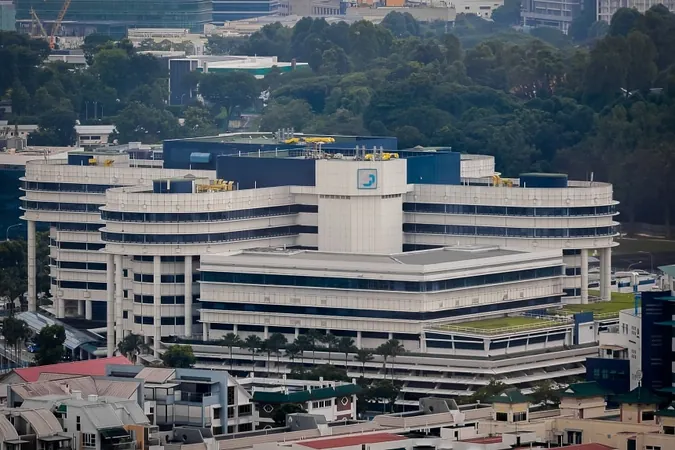
Revolutionary Gene Detective Program in Singapore Uncovers Rare Disorders, Changing Lives for Over 300 Families!
2024-09-15
Introduction
In a significant breakthrough for rare genetic disorders, Singapore's KK Women’s and Children’s Hospital (KKH) has introduced an innovative diagnostic program known as Bridges, which has already benefited more than 300 families, helping them uncover the mysteries of rare diseases affecting their children.
The Impact of the Bridges Program
One particularly poignant case involved a young girl who, after years of being a medical enigma, finally uttered “papa” and “mama” at the age of ten and learned to feed herself. Despite undergoing various tests, including blood work and brain MRIs since infancy, doctors were unable to pinpoint the cause of her delayed developmental milestones. Her story reflects the struggles many families face when seeking answers about rare genetic conditions.
Program Success and Collaboration
To tackle such complexities, KKH's Bridges program, initiated in 2014, focuses on diagnosing children with suspected genetic disorders. Collaborating with prestigious genomic research institutes like the Agency for Science, Technology, and Research, Bridges has screened over 700 families to date, achieving a diagnostic success rate of nearly 49%—a notable increase from 39% in 2020.
Technological Advancements
Recent advancements in technology have been key to this progress. Whole exome sequencing, a pioneering technique that identifies genetic variations across numerous genes, provided critical insights into the young girl’s case, revealing mutations in the DRG1 gene. This discovery led to the identification of a new disorder—Tan-Almurshedi syndrome, named after the lead researcher, Associate Professor Tan Ee Shien. The condition is extremely rare, with only four documented cases worldwide, but it opens the door for targeted treatments and tailored healthcare strategies.
Importance of Accurate Diagnosis
Associate Professor Saumya Jamuar, a senior consultant at KKH's genetics service, emphasized the importance of accurate diagnoses for medical management. Not only can a correct diagnosis avoid unnecessary tests, but it can also streamline care strategies, thereby improving the quality of life for the patient.
Genetic Counseling and Family Planning
Beyond diagnosis, the Bridges program also addresses the deep concerns of families who wish to expand their households. Genetic counselling is available to help parents understand the implications of genetic disorders, including the risk of recurrence in subsequent children. Depending on the condition, parents face varying risks, which informs critical family planning decisions.
Options for Prospective Parents
For couples grappling with the decision to conceive, various options exist, including pre-implantation genetic testing during in-vitro fertilization. This technique allows prospective parents to screen embryos for specific genetic mutations before implantation, providing another layer of assurance.
Advocating for Preventive Measures
While the Bridges program has made significant strides in addressing the challenges posed by rare genetic disorders, there is a push for preventive measures that could further empower families. Professionals advocate for proactive carrier screening, which can identify couples at risk of passing on recessive genetic conditions. This forward-thinking approach could transform how families prepare for the possibility of having a child with a genetic disorder.
Conclusion
The case of the young girl is just one of many within the Bridges program, and each success story underscores the critical role of genetic research and innovation in healthcare. As technology continues to evolve, the hope is that more families will receive answers and resources to navigate the complex world of genetic disorders, fundamentally changing lives in the process.
Stay Tuned
Stay tuned for more groundbreaking stories in genetics and healthcare innovations transforming lives!


 Brasil (PT)
Brasil (PT)
 Canada (EN)
Canada (EN)
 Chile (ES)
Chile (ES)
 España (ES)
España (ES)
 France (FR)
France (FR)
 Hong Kong (EN)
Hong Kong (EN)
 Italia (IT)
Italia (IT)
 日本 (JA)
日本 (JA)
 Magyarország (HU)
Magyarország (HU)
 Norge (NO)
Norge (NO)
 Polska (PL)
Polska (PL)
 Schweiz (DE)
Schweiz (DE)
 Singapore (EN)
Singapore (EN)
 Sverige (SV)
Sverige (SV)
 Suomi (FI)
Suomi (FI)
 Türkiye (TR)
Türkiye (TR)